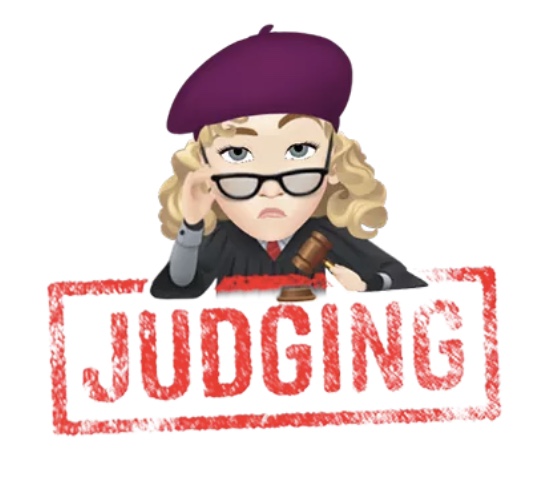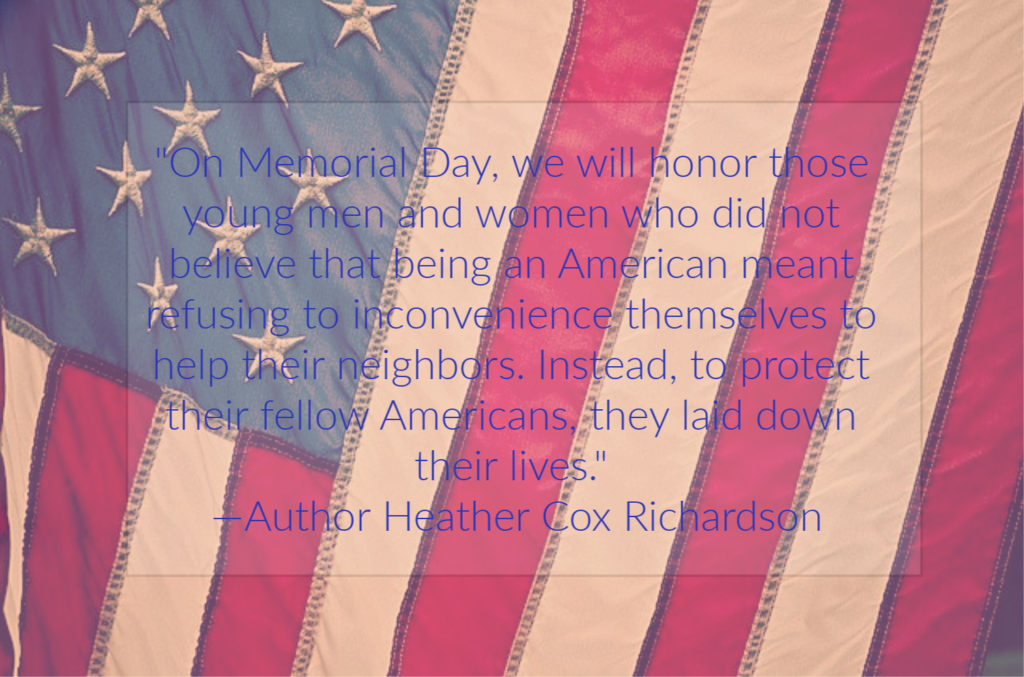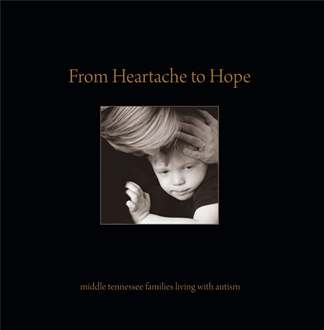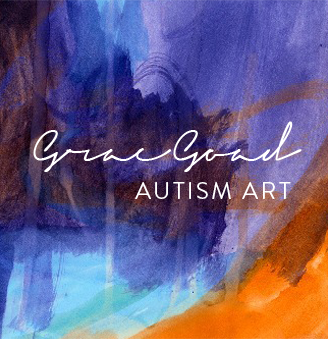Mother always said: 
“If you point a finger at someone, remember, you have four pointing back at you!”
So. As I write on the scorching hot topic of judging, I’m highly cognizant that I’m outnumbered in the pointy finger department. I’m swimming, bobbing up and down, in the thick of the topic of judgment these days. This could easily be, and may be, the subject of at least three separate blog posts—judging others, judging self, judging the state of what is right now….
Judging has been an interest of mine probably all of my adult life. Yes, part of the time, as it is still, (blush,) as a sometimes conscious and sometimes unconscious, sport in which I partake. A smart writer friend of mine who grew up, like me, Southern Baptist, but in Mississippi, as opposed to my native home of South Carolina, once observed the following. Judging seems to be in the DNA of Southern and Southern Baptist women. I agree, but also realize it’s not unique to a region of the country or a particular religion. But, let’s face it, some religious cultures and maybe more conservative cultures are a bit more skilled at judging than others. If you’ve lived it, you know what I mean.
…Weekends without Grace are often filled with household tasks accompanied by podcasts blaring in the background. In this excellent episode of his meditation podcast, “Ten Percent Happier,” former ABC news anchor Dan Harris, interviewed American Buddhist teacher Roshi Joan Halifax. She noted that judging is a part of our human evolutionary makeup. Our ancestors had to judge who was safe and who was not. Safety meant gravitating to those who were more like us.
At this writing, it’s Memorial Day, 2020, when America finds itself wading through the unchartered waters of a global pandemic. Grossly complicating the surrealness of it all, we are strangely, bitterly infighting about all manner of things that could save our own lives and that others—be it mask wearing, social distancing, isolation, quarantining, etc.

Having trouble reading this image? See quote in italics at end of the post along with linked source for author.
…I was guilty of posting an article about masks on Facebook and judging-ly and authoritatively adding a directive: “Wear. Them!” Plus, sharing a bit my disdain of non-mask wearing folks in more than one post. I’ve since learned that some people truly cannot wear masks because it affects their blood oxygen levels. A friend shared that her pregnant daughter-in-law could not breathe and temporarily lost vision in one of her eyes after wearing a mask at her workplace for four days. She took off the mask and laid her head on her desk, and within 15 minutes, she was okay. Another friend is monitoring her blood oxygen levels while wearing a mask, because she’s not out of the weeds from a long-complex journey with cancer. And when I shared this with disAbility colleagues, during a ubiquitous Zoom meeting, I learned that it was also an issue for people born with heart defects, plus a long list of those with complex medical needs.
Now, I kinda doubt that those are the folks that pass me in the grocery, faced uncovered, who give me—sporting a mask— the side eye. But that’s not the point. I’m coming back to my days of studying nonviolent/compassionate communication (referenced at the end of this blog post,) and what I’ve learned from Buddhism. We’re all humans. We all have unique and complex stories that drive our behaviors. I’m not defending folks who are not wearing masks for cultural-political reasons. (I do not agree with them.) But, I’m asking the question of myself. Maybe you will join me in asking yourself: Can I choose not to judge them? I mean, really, what good does it do? Turns out science is revealing, it actually harms our own selves….
“Being judged by someone offends us if the judgement is true and more so if it is false. When we accuse or judge another, it has the same effects on us as being judged ourselves. Any judgement we make, no matter of whom, registers in the heart as a disruption of relationship, and the heart dutifully responds on behalf of our defense, shifting in neutral, hormonal and electric magnetic systems from relational to defensive. Our sensory systems reflects those shifts in its source material and the environment we experience changes accordingly although perceived as the usual natural phenomena of our world to which we respond as usual. Creator and created are giving rise to each other, we are judged as we have been judged. Sewing with arrogance, reaping with tears.”
—Joseph Chilton Pearce, The Biology of Transcendence
Addendum to this quote, source unknown, though it may be Pearce or the study of “heartmath” : When we judge others, it changes the glial cells in our heart.
The great Martin Luther King said, “We don’t have to like our neighbors, but we are commanded to love them.” I think a lot of us don’t like our symbolic neighbors right now, but can we love them? Can we have compassion for the pain that they are also experiencing? In the interview, referenced above, Halifax, the Buddhist teacher, refers to her work with death row inmates. People who’d committed hideous crimes. But she learned to see these individuals through the lens of compassion as hurting members of humanity. I know this is a far stretch for a lot of us. Can we agree to disagree, but flip our judgment into compassion and stop judging no matter how out of compliance we view other’s actions? I’m not noble here. But I’m challenging myself. It’s an act of love to myself. Because. I am you. I am “them.”…Our infighting, you know, has come from seeing “you,” “me,” “them,” as separate.
Religions provide us a lens for looking at the world. Almost all world religions share the tenet of the Golden Rule—“Do unto others as you would have them do unto you.” I embrace the principles of metaphysics and learned much from New Thought. Many of us can translate and relate to principles within the lens our belief systems. The principles of Oneness (we are all One in energy matter and with the universe,) may seem strange to some. Once upon the time, three decades ago, I judged it as pure woo-woo hogwash. But translated into Christian speak, we are created of the divine. And Jesus taught through his exemplary life of love to embrace the prostitute and the tax collector, the blind, widowed, sick, etc. People we deem not like us….Oneness. And when it comes to judging, that’s to be left up to a higher power, anyways, at least in Christian teachings, if not always practiced.
It’s an exercise in surrender and a tall order. But you know what, I’m a whole lot less tied up in knots about others—as much as I may disagree with them—if I can see them with compassion and remember they are me and to love them.
Speaking of “them” as me, we’re getting to look at the dark-dark side of our humanity, individually and collectively right now. (In my pandemic series, “Grace in the Time of Corona,” on this blog, LeisaHammett.com, I’m writing about this frequently.)…I got really agitated at someone Saturday night. I hadn’t gotten that irritated in a long time. And I took it out on myself by eating. Yep, in the midst of this crisis, I’ve struggled with some old ways. It was something I hadn’t done in a long time. Something I’d never been as conscious of what I was doing as I was when I was doing it Saturday night. Though I continued to eat, (a chopped peach drizzled in Amaretto—yum!— then three almond butter chocolates the size of large Reeses,) I became an observer, the witness:
“Wow. You’re really angry right now and this is how you are choosing to handle it? You know this will have one nanosecond of pleasure and long serving of regret.”
Upon reflection, after I licked the chocolate off my chops*, I could see that the person with whom I was upset was behaving in a way that I have been known to behave. I didn’t like what they were doing because it could have been me….I-me-she.
Deep breath….Compassion….Mercy starts at home….
From Angela Thompson Howell, author of Finding the Gift: Daily Meditations for Mindfulness, also quoted here,
“Hard times reveal our true selves, even the parts we may have hidden from ourselves. Obstacles and dead ends will reveal new seedlings ready to be watered and sprout so we can shine anew. They will reveal areas to heal and grow so we can do the necessary work and then shine anew. You see how this works?! […]The only way we don’t shine forth in new ways is if we ignore what these gifts are trying to bring. […]Please listen to that still small voice and if you aren’t doing this already, it’s time to wake up. Please open your eyes and hearts […]”
Stay tuned for parts II and III to this post: Judging self and Judging what is right now. Give me your thoughts in comments if so moved. —xxL
———————————————————————-
Quote and source from flag picture: “On Memorial Day, we will honor those young men and women who did not believe that being an American meant refusing to inconvenience themselves to help their neighbors. Instead, to protect their fellow Americans, they laid down their lives.” —Author Heather Cox Richardson
*There’s nothing wrong with the foods I ate in my punishing moments of self-anger. It was that I didn’t stop at one dessert, at 10 percent, and that I was eating for emotional reasons. More about that here.





Oh gosh Leisa — I love this. Your writing and you (probably the curly hair, which a love) remind me of Anne Lamott. I am not a mask wearer, I confess. But I never thought about it from the perspective of the Golden Rule. My 88-yo mother goes out in her mask and I am thankful for it. I have willingly put on a mask if a business requests. (Such as when I had my hair done). In my defense we do live in a small town. Thank God we have only had 30 some cases in entire county. And no deaths. I know I live in an abnormal bubble re Covid.
As far as the chocolate. This has been hard on all of us. Our mental health. I’ve had to apologize more than once about a remark or my behavior. We are all in this together. Eating too much chocolate is better than spouting things we’d later regret. xxoxoxoxo
Jamie, it thrills me to reconnect with you here! Oh, dear, what flattery to compare me to the great Anne Lamott! And you’re right about the chocolate. Long term it has and will add up, so, I’m relearning better coping mechanisms. I amended that part of my post to clarify and drop a link: I didn’t eat an inordinate amount and my thinking and experience on why this was not a good coping strategy for me. Good to hear a small town perspective, too! xxL